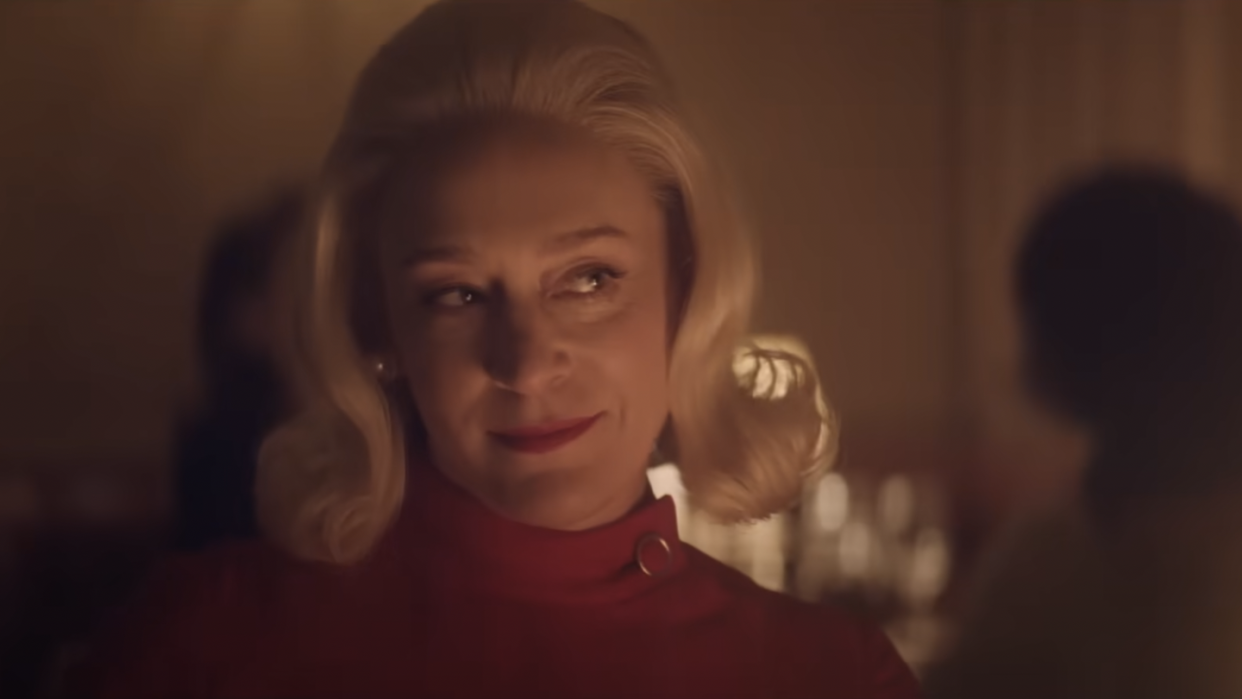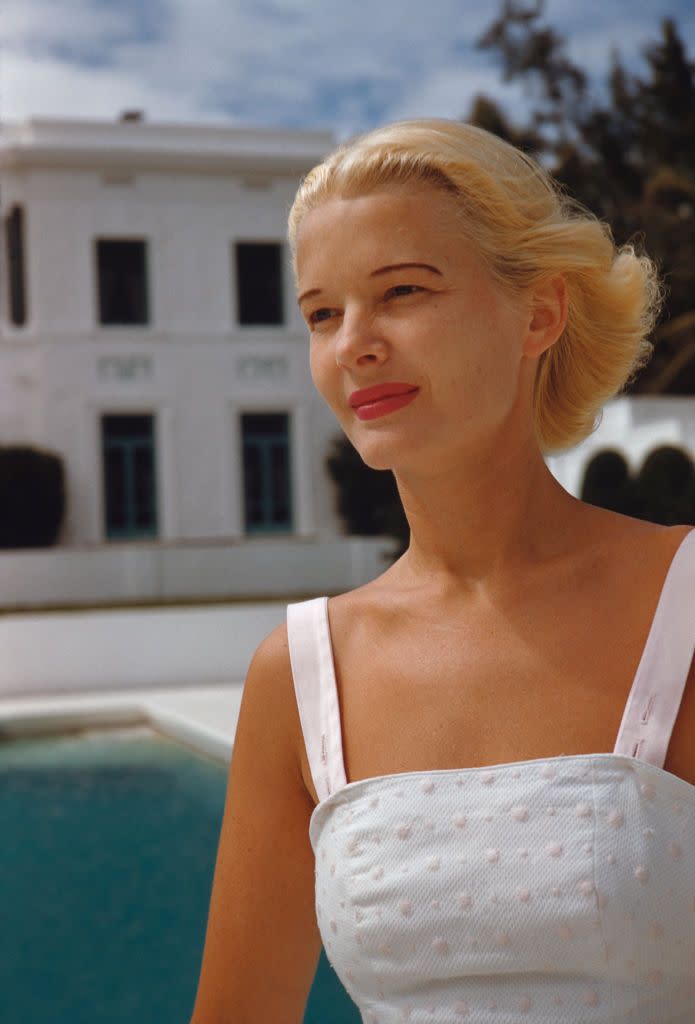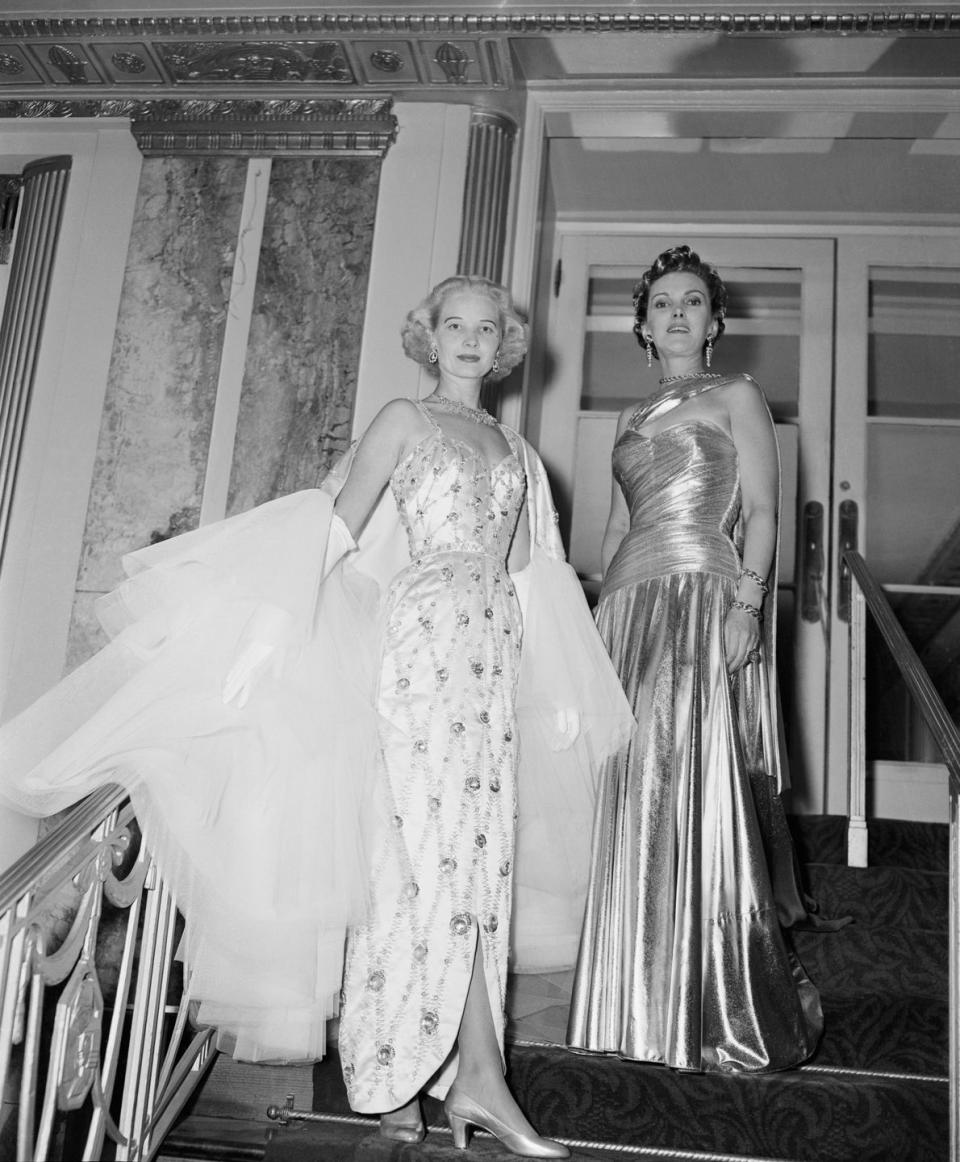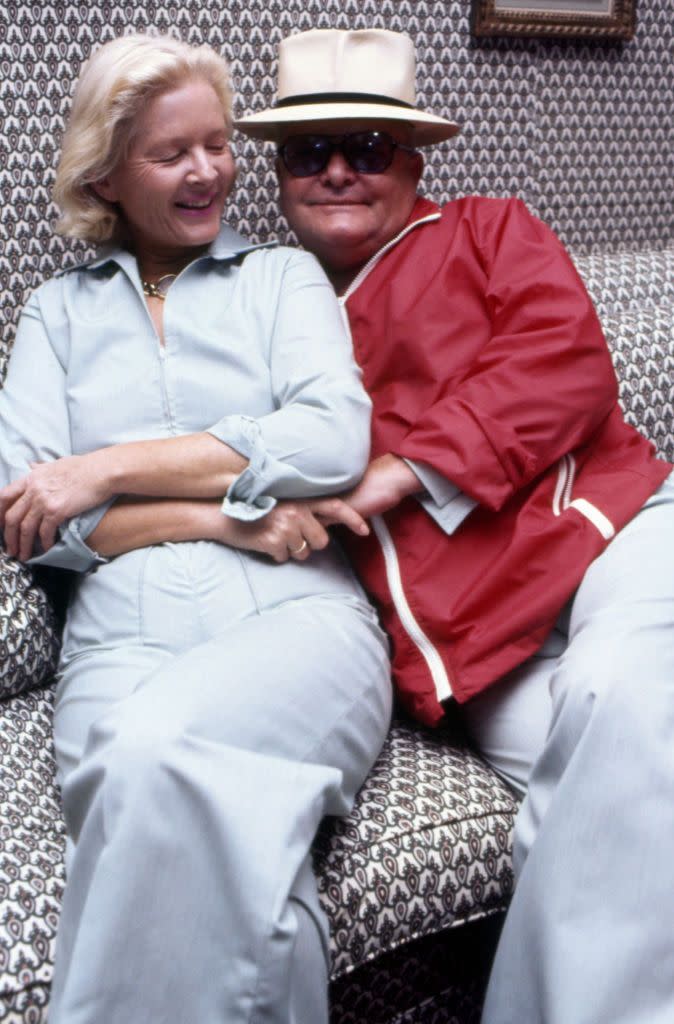Why Couldn't Truman Capote Shake C.Z. Guest?

- Oops!Something went wrong.Please try again later.
"Hearst Magazines and Yahoo may earn commission or revenue on some items through these links."
C.Z. Guest once said, “I’m not ashamed of the way I live.” Guest—who is portrayed by Chloë Sevigny in Feud: Capote vs The Swans—was well-known for her lavish lifestyle. In an interview with the The Washington Post, she spoke unapologetically about her finances. “If you have money and servants, then you’re helping somebody,” she said. “If rich people didn’t spend money, the country would be in much worse shape than it is today. If you have money, then you give people pleasure. I wish I had more money. I’d spend more.”
Perhaps that candor (for better or worse!) is why Guest was largely spared from Truman Capote’s shocking short story, "La Côte Basque, 1965." The story, which was published in this very magazine, included intimate details about Capote’s glamorous friends—a group of women dubbed “The Swans." The group included Guest, Babe Paley, Slim Keith, Lee Radziwill, Ann Woodward, and Joanne Carson. Capote, a trusted confidant, used the Swans' secrets to hatch a plot about New York's elite class. The women were appalled, aside from Guest, who seemed relatively unbothered by the debacle.
Despite the betrayal, which serves as the driving force in Feud, she remained friends with Capote for years. Below, we’ve broken down everything you need to know about C.Z. Guest—the only woman who was unfazed by Capote’s antics.
Who is C.Z. Guest?
C.Z. Guest was born Lucy Douglas Cochrane on February 19, 1920. According to Associated Press, “C.Z.” was adapted from the nickname “Sissy,” which her siblings called her. Guest was raised in Boston, Massachusetts, where she was a popular young debutant and socialite.
Guest's waspy upbringing awarded her many privileges, including an acting stint in the 1930s. The New York Times reports that she starred in a revival of the Ziegfeld Follies, but her career as an actress ended soon after. In 1947, she married Winston Frederick Churchill Guest (a distant relative of Prime Minister Churchill) at Ernest Hemingway’s estate in Cuba. Hemingway was the best man.
In the following yeas, Guest took up many hobbies, such as horseback riding and gardening, the latter of which she pursued after a riding accident. She was also a lover of fashion; in the 1950s, she was deemed one of “the best-dressed women in the world” by the New York Dress Institute.

Though Guest was raised to be prim and proper, she was surprisingly carefree, opinionated, and crass. Capote once described her humorous personality, writing, “Who could have imagined that lurking inside this cool vanilla lady was a madcap, laughing tomboy?” Unlike the other Swans, Guest was rarely afraid to speak her mind. In a 1997 interview with The Washington Post, titled "The Rich Fight Back," Guest recalled being asked about the hippie movement by Women’s Wear Daily. “I told them I was against it,” she said. “None of those people wore underwear, no wrappers, no nightgowns. If you don’t teach your children what’s right, they’ll never do it. Even John Fairchild (the WWD publisher at the time) called and said, ‘Sweetie, thank God you had the courage to say it.”
Though Guest was unabashedly wealthy, she thought it was gauche to speak about money—and morally reprehensible to critique those who had it. Once, while promoting her book First Garden, an interviewer asked if she was rich. Her response? “Have you ever had an abortion?” According to Guest, asking another invasive question was the only appropriate answer. “Naturally, she looked shocked,” Guest told The Washington Post. “So, I said, ‘My dear, you have just asked me the rudest question one human being can ask another. So, I thought I would ask you the same kind of question.’”
While speaking with the Post, Guest further clarified her stance on discussing others' finances. “I think it’s awful to judge others. I work very hard to improve myself. But if someone else wants to buy yachts and stay drunk all the time, well, that’s their business. I might think they were boring and missing a lot of fun. But if they are buying yachts, they are spreading money around, circulating it, and therefore helping others, whether they know it or not.”

How did C.Z. Guest and Truman Capote Become Friends?
Capote and Guest first met on the opening night of My Fair Lady in New York. Capote wrote about the encounter in the foreword to Guest’s book.
“There are blondes, and then there are blondes,” wrote Capote. “Mrs. Guest, shimmering in the blue smoky light, was one of the latter. Her hair, parted in the middle and paler than Dom Perignon, was but a shade darker than the dress she was wearing, a Mainbocher column of white crepe de chine. No jewelry, not much makeup; just blanc de blanc perfection.”

The production of My Fair Lady sparked a decades-long friendship. After "La Côte Basque, 1965" appeared in Esquire, Guest was encouraged to cut ties with Capote. He had, after all, just aired their friend's dirty laundry in a national publication. One victim, Ann Woodward, was so distraught by Capote’s story that she committed suicide. The fallout was devastating for everyone except Guest, who chose to give him a second chance. In 1978, Guest and her husband, Winston, reportedly took Capote to rehab.

What Happened to C.Z. Guest?
C.Z. Guest remained a beloved socialite, fashion icon, and gardener until her death in 2003. This, Capote once explained, was how things were meant to shake out. “Oh it must have been fun,” Capote said of Guest's wild years spent acting in Hollywood and posing nude for a portrait by Diego Rivera. “But at heart, she was too conservative, too countrified for all that—she needed a home and a husband and dogs and horses and children (in that order) and flower gardens and vegetable gardens, and when she met the right man, the very massive but very gentle Winston F.C Guest, she got them: houses, with gardens galore, in Old Westbury, Middleburg, and Palm Beach.”
You Might Also Like

